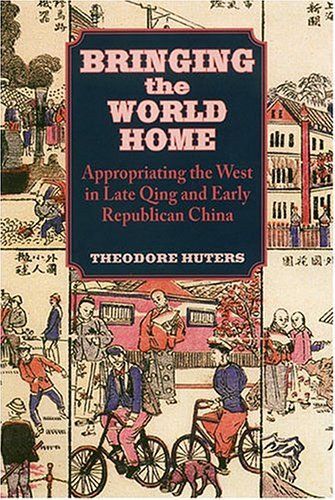
Bringing the World Home Appropriating the West in Late Qing and Early Republican China
Bringing the World Home sheds new light on China’s vibrant cultural life between 1895 and 1919—a crucial period that marks a watershed between the conservative old regime and the ostensibly iconoclastic New Culture of the 1920s. Although generally overlooked in the effort to understand modern Chinese history, the era has much to teach us about cultural accommodation and is characterized by its own unique intellectual life. This original and probing work traces the most significant strands of the new post-1895 discourse, concentrating on the anxieties inherent in a complicated process of cultural transformation. It focuses principally on how the need to accommodate the West was reflected in such landmark novels of the period as Wu Jianren’s Strange Events Eyewitnessed in the Past Twenty Years and Zhu Shouju’s Tides of the Huangpu, which began serial publication in Shanghai in 1916. The negative tone of these narratives contrasts sharply with the facile optimism that characterizes the many essays on the "New Novel" appearing in the popular press of the time. Neither iconoclasm nor the wholesale embrace of the new could square the contradicting intellectual demands imposed by the momentous alternatives presenting themselves. An electronic version of this book is freely available thanks to the support of libraries working with Knowledge Unlatched, a collaborative initiative designed to make high-quality books open access for the public good. The open-access version of this book is licensed under Creative Commons Attribution-NonCommercial-NoDerivatives 4.0 International (CC BY-NC-ND 4.0), which means that the work may be freely downloaded and shared for non-commercial purposes, provided credit is given to the author. Derivative works and commercial uses require permission from the publisher.